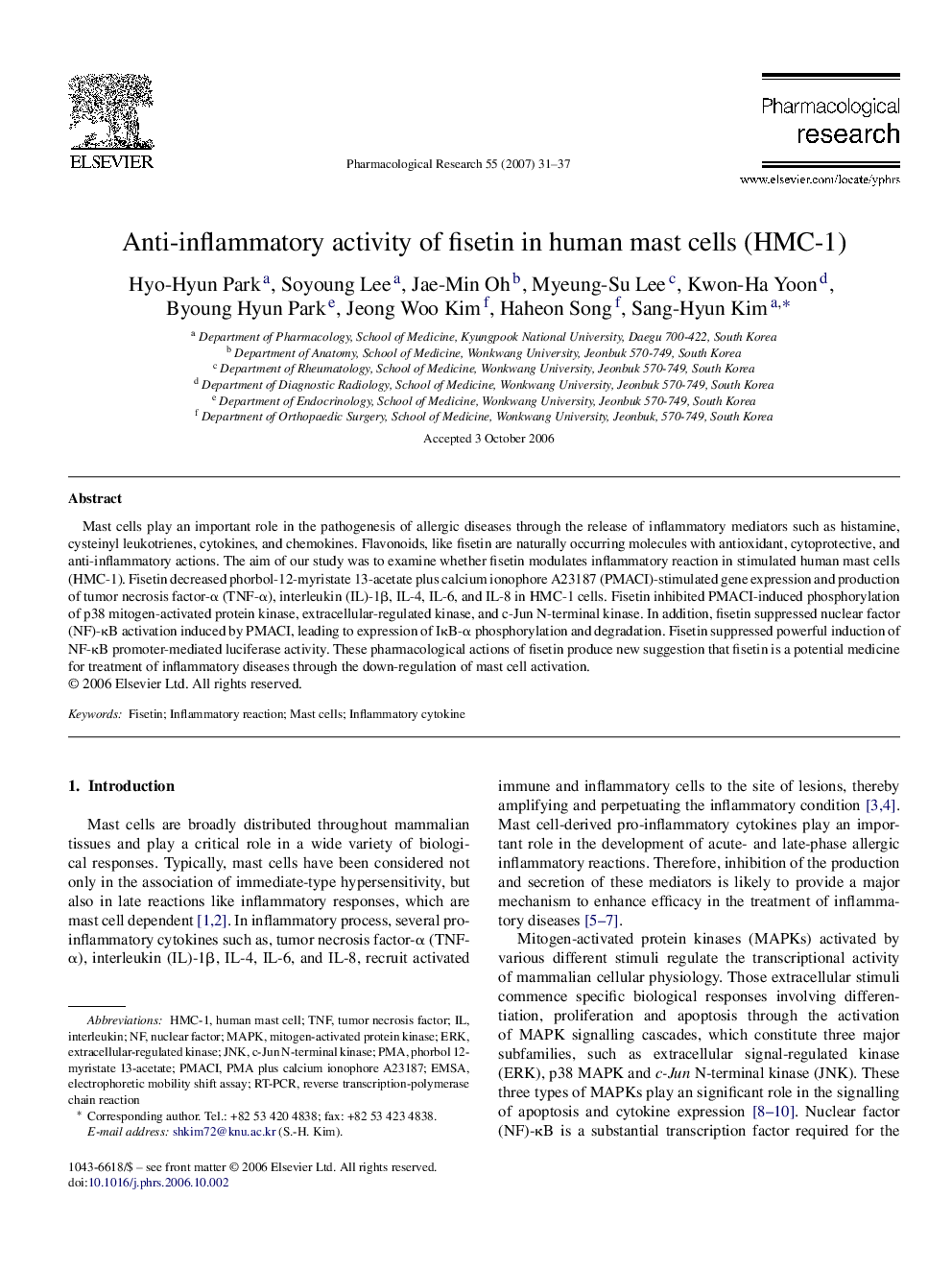| Article ID | Journal | Published Year | Pages | File Type |
|---|---|---|---|---|
| 2562484 | Pharmacological Research | 2007 | 7 Pages |
Mast cells play an important role in the pathogenesis of allergic diseases through the release of inflammatory mediators such as histamine, cysteinyl leukotrienes, cytokines, and chemokines. Flavonoids, like fisetin are naturally occurring molecules with antioxidant, cytoprotective, and anti-inflammatory actions. The aim of our study was to examine whether fisetin modulates inflammatory reaction in stimulated human mast cells (HMC-1). Fisetin decreased phorbol-12-myristate 13-acetate plus calcium ionophore A23187 (PMACI)-stimulated gene expression and production of tumor necrosis factor-α (TNF-α), interleukin (IL)-1β, IL-4, IL-6, and IL-8 in HMC-1 cells. Fisetin inhibited PMACI-induced phosphorylation of p38 mitogen-activated protein kinase, extracellular-regulated kinase, and c-Jun N-terminal kinase. In addition, fisetin suppressed nuclear factor (NF)-κB activation induced by PMACI, leading to expression of IκB-α phosphorylation and degradation. Fisetin suppressed powerful induction of NF-κB promoter-mediated luciferase activity. These pharmacological actions of fisetin produce new suggestion that fisetin is a potential medicine for treatment of inflammatory diseases through the down-regulation of mast cell activation.
